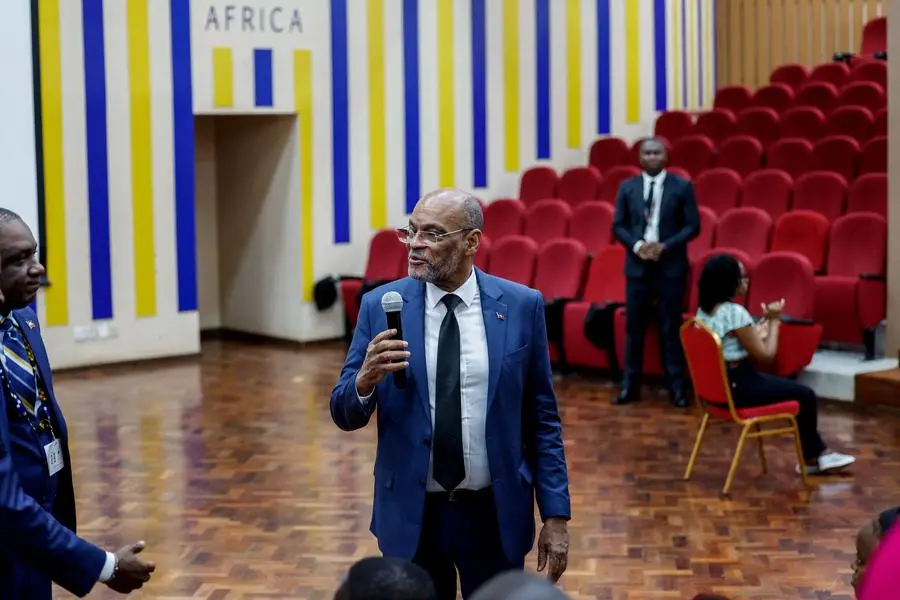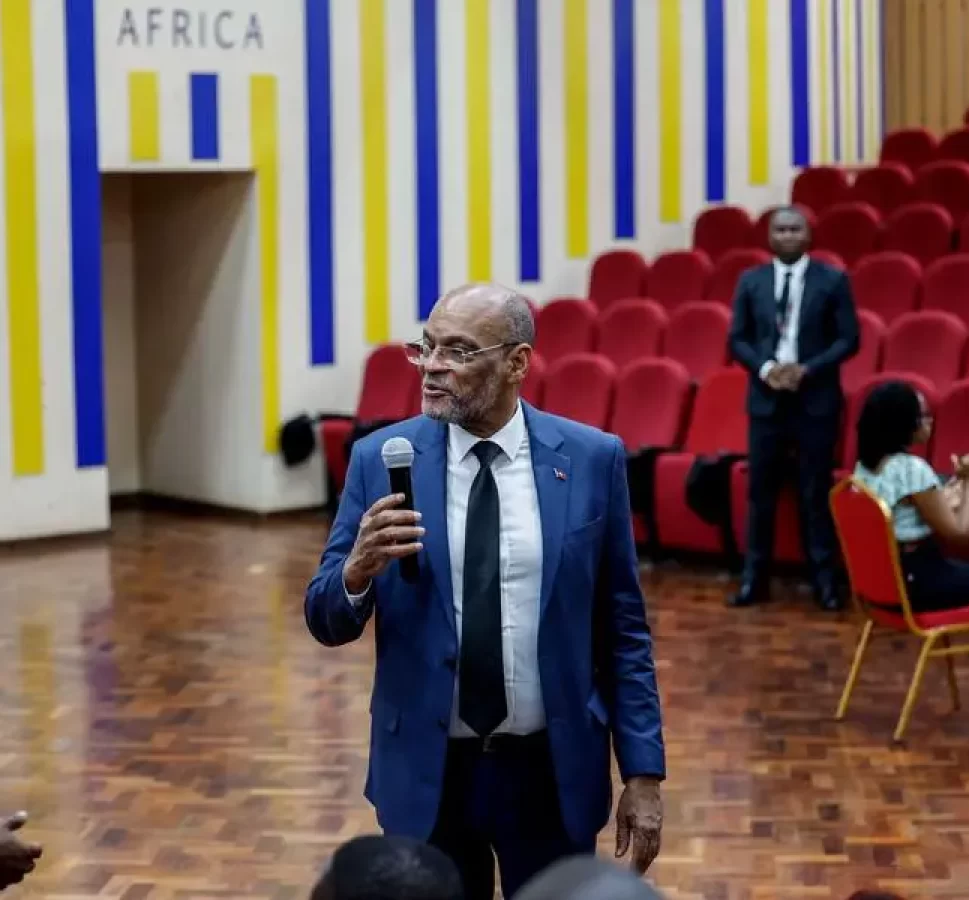
The agreement would allow Kenyan police to lead a UN-backed mission in the gang-riven Caribbean nation.
Kenya and Haiti have signed a “reciprocal” agreement to deploy police from the East African country to lead a United Nations-backed law and order mission in the gang-riven Caribbean nation, Kenyan President William Ruto has said.
Ruto said on Friday that he and Haitian Prime Minister Ariel Henry had “discussed the next steps to enable the fast-tracking of the deployment”, but it was not immediately clear whether the agreement would counter a court ruling in January that branded the deployment “unconstitutional”.
The deal was signed as the Haitian capital Port-au-Prince was racked by deadly gang-related violence, forcing businesses and schools to close and flight cancellations.
Kenya had previously said that it was ready to provide up to 1,000 personnel, an offer welcomed by the United States and other nations that had ruled out putting their own forces on the ground.
But a Nairobi court said the decision was unconstitutional, in part because the two countries had not signed a reciprocal agreement on the issue.
On Friday, Ruto said he and Henry had “witnessed the signing” of a reciprocal agreement in Kenya’s capital Nairobi.
“I take this opportunity to reiterate Kenya’s commitment to contribute to the success of this multi-national mission. We believe this is a historic duty because peace in Haiti is good for the world as a whole,” Ruto said in a statement.
The UN Security Council approved the mission in early October but concerns in Kenya over Nairobi’s involvement prompted a court challenge.
The ruling threw into doubt the future of a multinational force long sought by Haiti’s government, which has pleaded for international help to confront violence that has left nearly 5,000 dead.
Opposition politician Ekuru Aukot, who had filed the petition against the deployment, told AFP on Friday that he would lodge a case “for contempt of court”.
“We will question the validity of this secretive agreement,” he said.
Haiti, the Western hemisphere’s poorest nation, has been in turmoil for years, with armed gangs taking over parts of the country and unleashing brutal violence, leaving the economy and public health system in tatters.
A prominent gang leader said multiple factions were parlaying to launch attacks on state security forces in a bid to remove Prime Minister Henry.
Known as “Barbecue”, gang leader Jimmy Cherisier publicised the attack in a social media video just before the battles began.
“With our guns and with the Haitian people, we will free the country,” he said.
There are currently no elected officials in Haiti, with Henry sworn in as prime minister with the backing of the international community shortly after the July 2021 assassination of President Jovenel Moise. Under a political deal, the prime minister was supposed to hand over power to elected officials by February 7 this year, but this is yet to happen.






